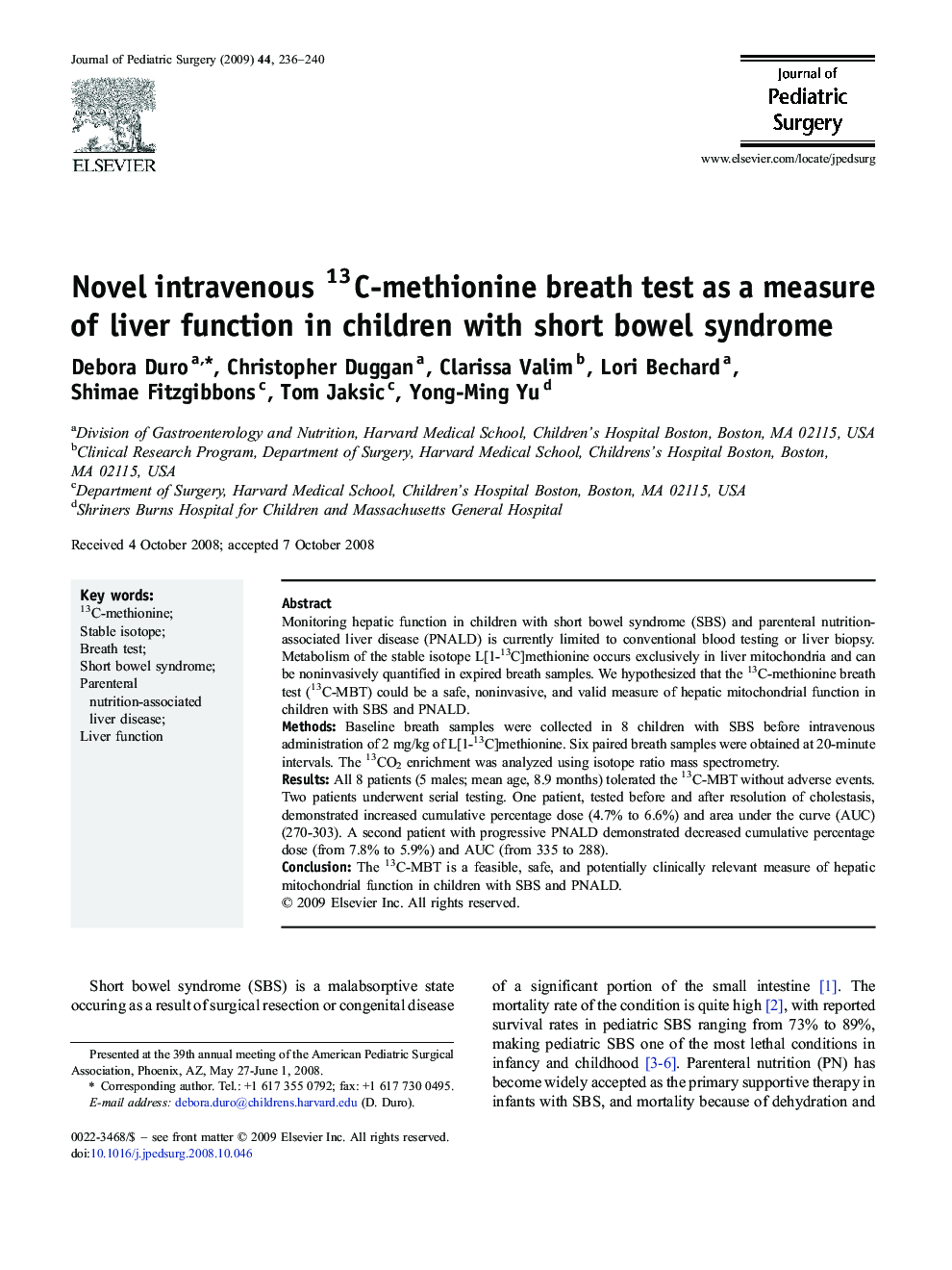| Article ID | Journal | Published Year | Pages | File Type |
|---|---|---|---|---|
| 4159744 | Journal of Pediatric Surgery | 2009 | 5 Pages |
Monitoring hepatic function in children with short bowel syndrome (SBS) and parenteral nutrition-associated liver disease (PNALD) is currently limited to conventional blood testing or liver biopsy. Metabolism of the stable isotope L[1-13C]methionine occurs exclusively in liver mitochondria and can be noninvasively quantified in expired breath samples. We hypothesized that the 13C-methionine breath test (13C-MBT) could be a safe, noninvasive, and valid measure of hepatic mitochondrial function in children with SBS and PNALD.MethodsBaseline breath samples were collected in 8 children with SBS before intravenous administration of 2 mg/kg of L[1-13C]methionine. Six paired breath samples were obtained at 20-minute intervals. The 13CO2 enrichment was analyzed using isotope ratio mass spectrometry.ResultsAll 8 patients (5 males; mean age, 8.9 months) tolerated the 13C-MBT without adverse events. Two patients underwent serial testing. One patient, tested before and after resolution of cholestasis, demonstrated increased cumulative percentage dose (4.7% to 6.6%) and area under the curve (AUC) (270-303). A second patient with progressive PNALD demonstrated decreased cumulative percentage dose (from 7.8% to 5.9%) and AUC (from 335 to 288).ConclusionThe 13C-MBT is a feasible, safe, and potentially clinically relevant measure of hepatic mitochondrial function in children with SBS and PNALD.
